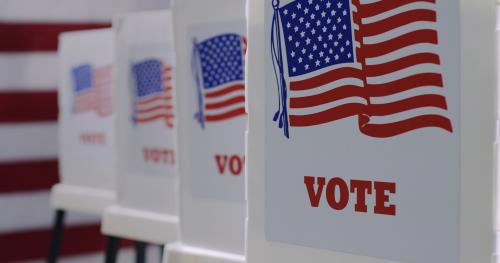The Great British economist Alfred Marshall once spoke of the need for “cool heads but warm hearts” in economic policy. In the face of growing economic insecurity, the Democratic-led Congress taking office in January would do well to heed that approach.
For the past three decades, macroeconomic growth has not made American families feel sufficiently secure. Median real wages have stagnated, and families now face substantial new risks. According to Yale’s Jacob Hacker, the average family had a 7 percent chance in the early 1970s of seeing its income drop by half or more. By 2002, that probability rose to nearly 17 percent.
This insecurity affects not only individual families, but our economy as a whole. It deters individuals from taking the risks—like starting a new business or taking a new job—that can lead to economic growth and makes it harder for families to rebound after bad times hit. Under these circumstances, policy makers who genuinely care about American families’ well-being may be tempted to pursue measures that interfere with the workings of the market. Such steps could involve anti-trade protectionism, constraints on hiring and firing, regulatory protections for specific industries, outsourcing restrictions, or requirements that businesses spend a certain percentage of their payroll on health care.
Although this approach may appear to provide much-needed temporary help, the evidence suggests it will ultimately harm the economy. As Nobel Prize-winning economist Paul Samuelson writes, “leaving or compromising free trade policies will most likely reduce growth in well-being in both the advanced and less productive regions of the world. Protectionism breeds monopoly, crony capitalism, and sloth.” Economic historian Peter Lindert surveyed developed countries since the 18th century and confirmed that direct market interventions impose a steep economic cost. By impairing overall economic performance, interventions often undermine the goals of higher living standards and job security .
The cool-headed but warm-hearted approach to economic security instead involves stronger education and saving policies, which prepare workers in advance for hard times, and also a revamped system of social insurance and progressive taxation, which cushion the blows that inevitably occur in the process of creative destruction.
Saving and asset accumulation give families a nest egg to draw upon during times of trouble. Many families save too little, though, because they don’t have time to focus on saving decisions and because they’re intimidated by the complexity. We need to adopt a Fast Lane approach that makes saving as automatic as paying a highway toll. For example, under an automatic 401(k), workers are enrolled unless they specifically opt out. Their contribution rate automatically rises over time, and their funds are invested in a diversified, low-cost portfolio. Workers could always make different choices, but the rules would have a default preference toward saving. This system works: Participation rates among new low-wage workers jump from under 15 percent to 80 percent when automatic enrollment is put in place. No other imaginable change boosts participation as much. Automatic savings vehicles should be universal.
The tax system can also help. A progressive tax system can help cushion income fluctuations, since it takes less in bad years than good. We could make the tax code both more progressive and more efficient by reforming the way we provide tax incentives. The nation devotes roughly $500 billion a year to subsidizing socially beneficial activities—such as retirement saving, healthcare, education, and homeownership—through the tax code. The vast majority of these incentives take the form of deductions or exclusions, so the size of a tax break depends on a household’s tax bracket. So a high-income household saves 35 cents in taxes for each dollar of subsidized activity; a middle-income household saves only 15 cents. The result is not only unfair but also inefficient. Instead, the subsidies should be delivered in the form of credits that do not vary by income. Each family would get a credit of, say, 25 cents for each dollar of activity. Such a shift would mean much larger benefits for more than three-quarters of families—the ones hardest hit by economic insecurity.
The dramatic increases in economic instability demand our response. We can learn lessons from Europe. In the Nordic economies (such as Denmark), market flexibility and competition have been combined with social insurance schemes that protect family incomes but also encourage work. In the continental European countries (such as France and Germany), governments have intervened directly in the workings of the market. The Nordic approach works better. Trying to shut down the process of creative destruction creates macroeconomic stagnation.
As they regain control of Congress, Democrats should remember that a combination of education, saving, social insurance, and progressive taxation would allow the engine of economic growth to continue humming—while still providing better protection to America’s working families.


Commentary
Op-edCool-headed, Warm-hearted Economics
December 3, 2006